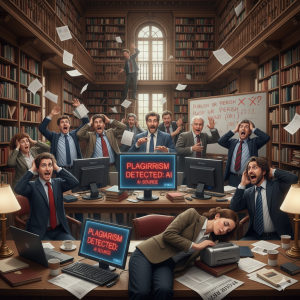There was a period in my twenties when I expected I would one day grow up and graduate from therapy. That’s what growing up meant to me – independence, wisdom, self-reliance. But as time passed, the moment of absolute self-sufficiency never arrived. To date I’ve seen forty-five therapists for anxiety, phobias, or general existential angst.
Below are five of the most memorable lessons learned from these practitioners. Although none of the lessons are related to anxiety or existential angst, all have proved invaluable in negotiating life’s vicissitudes.
1. Dr. B.* psychiatrist. Over several months Dr. B. prescribed a buffet of various SSRIs (serotonin reuptake inhibitors) for anxiety.
When none of them proved efficacious, he prescribed an SSRI on steroids. That one made me feel even crazier.
Lesson: My serotonin reuptake does not like to be inhibited; it likes to range free, grass-fed.
2. Dr. L., psychopharmacologist. Dr. L. took a brief history, then ordered me to count backwards by sevens.
I was completely unnerved. Couldn’t he have done sixes? I’ve never been good at sevens.
After struggling through the sevens backwards, he gave me another test.
“What county are we in?” he asked.
I got that one right because I’d recently sent out author brochures to elementary schools in Philadelphia, by county. Otherwise I never would have known that Philadelphia is in Philadelphia County.
Lesson: Mailing out brochures can save you from being committed or put on some highly unpleasant medication.
3. Dr. R., family doctor. “I have the perfect medication to help you relax and get a good night’s sleep!” Dr. R. said, looking pleased with herself. “This drug actually reproduces the natural architecture of sleep.”
I almost dozed off just listening to her.
“How did it work?” she asked at our next appointment.
“Actually,” I said, “It kept me awake.”
“What? You mean it didn’t sedate you?” She sounded annoyed.
“Yes, it sedated me. But I couldn’t sleep.”
“That makes no sense,” Dr. R. practically shouted. “How can something sedate you and keep you awake at the same time?”
Lesson: Doctors have a hard time accepting patients who can perform seemingly-impossible feats.
4. Dr. S., psychiatrist. Dr. S. was thrilled with a new “worry drug” the FDA had just approved.
For me every drug is a worry drug; I worry that it will affect my creativity. After all, I plot my stories is by saying, “What if?” which also happens to be the way I worry.
So what if I take this new worry drug and it works so well I can’t say “What if” anymore?
“No, no, this drug just treats the pathology,” Dr. S. assured me.
After I swallowed the first pill I decided test my creativity just to make sure the new medication had not treated that. I started singing one of my favorite Cole Porter songs, Let’s Do It (Let’s Fall in Love). “Could I write that feeling the way I feel now?” I asked myself. “Definitely not!” came the answer. I was seized by panic until I remembered . . .
Lesson: You’ll never write a Cole Porter song no matter what medication you’re on.
5. Dr. K., psychiatrist. I consulted Dr. K. for driving phobia, which I had developed trying to merge on to the George Washington Bridge.
“I’m terrified of roads with multiple lanes,” I told him. “I didn’t get the merging-traffic gene.”
Dr. K. frowned.
That’s tricky,” he said, after a moment. Then he just sat there, looking stumped.
Lesson: When a psychiatrist says “that’s tricky” it means he’d rather be home watching the New York Giants or taking a nap.
In that case, it’s best to say “thank you” and start looking for therapist number forty-six.
*I’ve referred to practitioners by first initial of last name only, to protect them against being taken too seriously.






Hilarious. Especially the paragraph about knowing that Philadelphia is in Philadelphia County. Humor is a fun and effective coping mechanism.